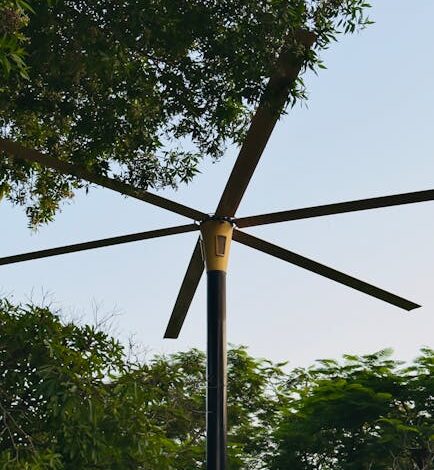The Invisible Hand of Carbon: Understanding Carbon Certificates

In our increasingly interconnected world, where climate change conversations dominate headlines and corporate boardrooms alike, the focus often shifts to innovation — not just in technology, but in finance. How do we put a tangible value on a ton of carbon dioxide *not* released into the atmosphere? How do we ensure that our efforts to combat global warming are not just well-intentioned, but genuinely effective and verifiable? These aren’t just academic questions; they’re the bedrock of a burgeoning global market aimed at incentivizing sustainability.
Enter Egypt, a nation making significant strides in its commitment to climate action and economic diversification. Its latest move, announced by the Financial Regulatory Authority (FRA), is a potential game-changer: the establishment of the nation’s first credit rating agency specifically for carbon reduction certificates. This isn’t just a regulatory tweak; it’s a strategic pivot designed to inject trust, transparency, and robust evaluation into a critical segment of the green economy. And if you’re wondering why that matters, buckle up – we’re about to dive into why this initiative is far more impactful than it might first appear.
The Invisible Hand of Carbon: Understanding Carbon Certificates
Before we delve into the mechanics of a credit rating agency, let’s clarify what we’re talking about when we say “carbon reduction certificates.” Often interchangeably referred to as carbon credits, these are essentially verifiable permits that represent the reduction or removal of one metric ton of carbon dioxide equivalent (CO2e) from the atmosphere. Think of it as a financial instrument for environmental good.
These certificates aren’t conjured out of thin air. They’re earned by projects that actively reduce greenhouse gas emissions or enhance carbon sequestration. Imagine a sprawling solar farm replacing a fossil fuel power plant, a new wind energy project coming online, or a massive reforestation initiative transforming barren land into a lush carbon sink. After rigorous independent verification that confirms the emission reductions are real, measurable, and additional (meaning they wouldn’t have happened without the carbon finance incentive), these projects are issued certificates.
Once issued, these certificates become tradable assets. Companies, particularly those with significant carbon footprints, can purchase them to offset their own emissions, helping them meet regulatory requirements or voluntary sustainability targets. This creates a market-based incentive: the more effective a project is at cutting emissions, the more certificates it earns, and the more valuable those certificates become. It’s a powerful mechanism designed to channel private investment towards climate-friendly initiatives, bridging the gap between environmental ambition and financial reality.
Building Bridges of Trust: Why a Rating Agency is a Game Changer
The concept of carbon credits is elegant in its simplicity, but its execution is complex. The global voluntary carbon market has grown exponentially, yet it has also faced its share of skepticism. Concerns around “greenwashing” – where companies make exaggerated or misleading claims about their environmental efforts – and the quality and integrity of some carbon credits have, at times, cast a shadow over its potential. This is precisely where Egypt’s FRA steps in, aiming to address these critical trust deficits head-on.
A credit rating agency, in the traditional sense, assesses the creditworthiness of debt instruments or issuers. For carbon certificates, the principle is similar, but the assessment criteria shift. Egypt’s proposed agency won’t just look at financial stability; it will meticulously evaluate the environmental integrity and credibility of each carbon certificate. This means diving deep into the issuing projects to verify that the claimed emissions cuts are truly real, measurable, permanent, and additional. They will also assess the financial robustness of the projects themselves, ensuring their long-term viability and impact.
Battling Greenwashing and Boosting Investor Confidence
For investors, this agency is a beacon of clarity. Currently, evaluating the quality of carbon credits can be a daunting task, requiring specialized expertise and due diligence. A reputable credit rating can simplify this, providing a standardized, independent assessment that helps investors distinguish between high-quality, impactful certificates and those that might be less credible. This clarity is crucial for attracting institutional investors, who typically demand robust, transparent metrics before committing capital.
Moreover, the agency will act as a vital bulwark against greenwashing. By establishing stringent verification standards and providing transparent ratings, it will significantly reduce the risk of low-quality or fraudulent certificates entering the market. This not only protects investors but also preserves the integrity of the carbon market itself, ensuring that every purchase truly contributes to genuine climate action. It’s about ensuring that the promise of environmental impact translates into verifiable reality.
Setting a Global Precedent?
Egypt’s initiative isn’t just about domestic market regulation; it could very well set a precedent for other emerging economies looking to develop robust, trustworthy carbon markets. Many countries, particularly in the Global South, are rich in potential carbon reduction projects but often lack the sophisticated financial infrastructure to attract significant international investment. By building a transparent, credible system from the ground up, Egypt positions itself as a leader in sustainable finance, demonstrating how regulatory innovation can unlock environmental and economic value.
This commitment to developing a robust regulatory and technical framework, as highlighted by Tarek Seif, Executive Director of the FRA’s Financial Services Institute, underscores a forward-thinking approach. It’s about building foundational trust in a market that desperately needs it, enabling both local and international players to invest with confidence, knowing their contributions are genuinely making a difference.
Looking Ahead: The Road to a Robust Carbon Market
The establishment of this credit rating agency is more than just a regulatory measure; it’s a strategic investment in Egypt’s sustainable future. It signals a clear intent to foster a mature, credible carbon market capable of attracting significant investment into climate-friendly projects. This, in turn, will accelerate Egypt’s own transition to a greener economy, supporting renewable energy development, sustainable agriculture, and conservation efforts.
As the world grapples with the escalating urgency of climate change, market-based solutions like carbon credits will play an increasingly vital role. However, their efficacy hinges on trust and transparency. Egypt’s bold step towards establishing a dedicated credit rating agency for carbon certificates is a powerful statement. It’s an affirmation that rigorous financial oversight and environmental integrity can, and must, go hand in hand. It’s a blueprint for a future where investments in sustainability are not just good for the planet, but also demonstrably good for business, underpinned by verifiable impact and unwavering confidence.
Ultimately, this initiative has the potential to transform how we perceive and participate in the fight against climate change, turning pledges into measurable progress and skepticism into systemic trust. It’s an exciting development that bears watching, not just for Egypt, but for the global journey towards a truly sustainable future.





